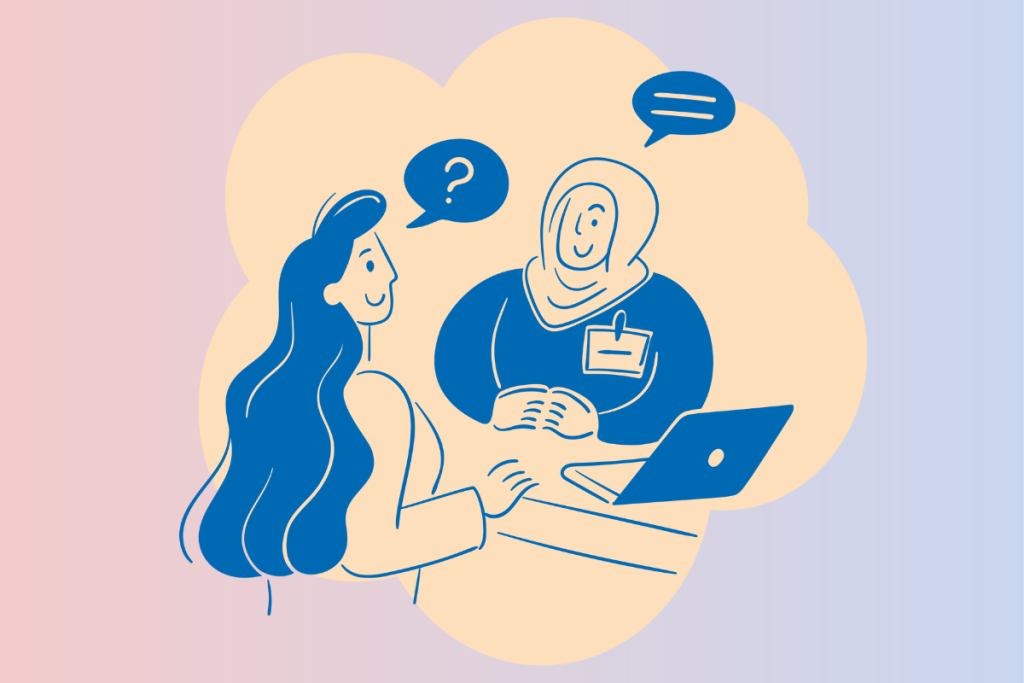What can psychology offer?

Psychologists can create a shared understanding and assess and treat wellbeing difficulties, such as relational difficulties, trauma, low mood, stress, hearing, seeing or feeling things others don’t and more.
Sessions can be held with just one person, in pairs or in a group setting – based on each person’s needs.
How can psychology help me?
Psychology can help you make sense of your story and what’s happened to you. We might call this a formulation.
Psychology can help you understand and manage your feelings, thoughts and emotions.
In a safe space to talk and be heard, we can help you find out what you’re good at and what you find difficult.
We’ll also help you learn new and existing skills, helpful patterns and ways of meeting your needs.
How can I access psychology support?
We are part of the integrated mental health team (IMHT).
If you feel that you need support from psychology, please speak to your clinical lead or named nurse.
Your clinical lead will then discuss your needs with the team and if agreed, you will be added to the psychology waiting list for assessment.
What happens during the assessment?

The psychologist or higher assistant psychologist (HAP) will ask you some questions to try and get to know you, your needs and how we can best support you.
Depending on your needs, the team can also write notes down or use drawings if you learn and understand things better this way.
Next, the team will complete a trauma and wellbeing questionnaire with you to understand your current difficulties and monitor progress.
Once we’ve completed the assessment, we will discuss the outcome with you (we might also send you a letter).
If you have any concerns over the process, there is space to talk through this in the assessment and we can adapt to your needs.
What happens during a session?
At the beginning of the session, we will agree on expectations and set some boundaries to make sure the sessions are a safe and trusting space.
The sessions will go at your own pace and together we will create a shared understanding of your current difficulties.
Once we have identified what it is you would like help with, we will start creating a plan together – using different therapeutic models to best meet your needs.
Before the session ends, we will discuss when we can book your next appointment (these tend to be weekly for an hour) and if there is anything that would be good for you to practice in the meantime.
If you have any concerns about this, please speak to us.
What happens with the information I share?
What you share with the psychologist and HAP is confidential within the IMHT (within limits). If you share something that highlights a risk to yourself or others, we will share the information and can do this without your permission.
Summaries of what we talk about will be added to your medical record. This is shared across healthcare and potentially other providers (it is separate to the prison system). However, staff will only access your records if they are working with you.
If you are due to have a parole, we may get asked to provide a short summary of your input from psychology.
You can choose what you share with us and what we share with others outside of your care. If other services ask if you are working with us, we will only tell them “yes or no”.
We won’t provide further details, unless we have your permission, or it is related to any of the exceptions mentioned above. We can only share your information with your permission (except for the above).
With your consent we can also share information with other services (such as the community or other prisons) to help with supporting you upon your release or transfer.
Feedback
Please let your care team know if you want to comment on whether:
- this information is useful
- any information is missing
- you do not understand the information
Do you have concerns or complaints?
If you have concerns or complaints about a service, you can:
- tell a member of staff
- call our patient advice and liaison service (Complaints) – freephone 0800 052 0219
- email [email protected]
Information in other languages and formats
All our information leaflets are available in many formats – please contact a member of staff if you would like this leaflet in:
- another language
- large print
- audio
- braille
L1187, v1 20/07/2023 (archive 19/07/26)